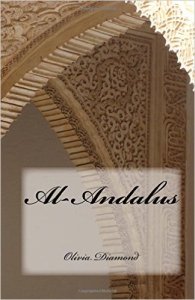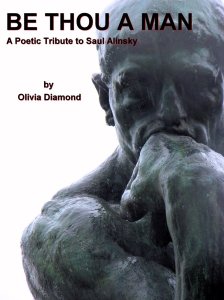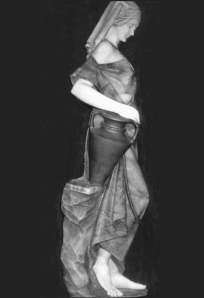Readers can now obtain CDs of my reading from my poetry books. Following is a list of the CDs:
- Women at the Well. Selected poems. Eve, Cain’s Wife, Rachel, Leah, Zipporah, Miriam, Delilah, Queen of Sheba, Judith (Old Testament Women); Anne, Elizabeth, Sisters of Yeshua, Mary Magdalene, Sinful Woman of Capernaum, The Woman at the Well, Judas’s Mother, Lydia (New Testament Women)
- Novenas for Grandmother. Entire collection. Grandmother Attends Grammar School, Grandmother Boards the Princess Alice, Grandmother Hears the Wolves, Grandmother Poses as a Cowgirl, Grandmother Tends the Grocery Store, Grandmother Takes English Lessons, Grandmother Kneads the Bread, Grandmother, Plants a Garden, Grandmother Attends Mass at St. Constance, Grandmother Buries her Husband, Grandmother Warns Alice Don’t Marry Him, Grandmother Visits Poland, Grandmother Babysits, Grandmother Remarries, Grandmother Goes to the Hospital, Grandmother’s Ghost Visits Me
- Playground. Selected poems. Preface-Before the Subdivision, The Best Toy, Bat and Ball, Ben Franklin Store, Coloring, Dandelion Necklace, Exploring the Creek, Jigsaw Puzzle, Jump Rope, Lightning Bugs, Old Horses, Paper Dolls, Picking Fallen Pears, Reading in the Tree, Running in the Rain, Snow Creations, Statue Maker, Swinging, Wax Paper Music
- Please Trespass Here. Selected poems. Afghan Beauty, After the Forest Fire, Bookworm, Brueghel Countryside, Cairn on the Trail, I Hear Walt Whitman Singing, Emily Dickinson’s Bedroom, In Heaven There Are No Books, Julius Caesar Returns from the Dead, Loss Like a River, Morning, Pieman in the Sky, Revisiting Brothers Karamazov, Running Eagle Falls, The Weeds of Revenge, Winter Fog, Tin Soldier Shop, Rise Up, Running On
- Still Unrepentant. Selected Poems. Incorrigible, Penmanship, The Roads Mistaken, Forest Walk, Pack Rat, Tooth and Claw, Green Folding Chair, Connection, After All These Years Still My Brown Cow, Once Upon a time in College, Dogs, Cruise Ship, Vision Quest, When the Countdown Began, What to Leave, Morning Routine, Choose Illusions, To Mourn 20 Children Slain, History Repeats Itself, Mint Tea, Sonnets 14 & 15
- Be Thou a Man: A Poetic Tribute to Saul Alinsky. Entire collection. Coming to America, Boyhood: West Side and West Coast, University of Chicago Years, The Criminologist, Back-of-the-Yards, Decade of the Forties, Decade of the Fifties, Decade of the Sixties, Incomplete Decade: Last Three Years, Missive from the Underworld
- Al-Andalus. Two Discs. Entire collection. Disc One – Cide Hamete Benengeli, Juan of Segovia, Iza de Jabir, Isabella, the Queen, Boabdil’s Muwashshah, Cardinal Jimenez de Cisneros, Alhambra Muwashshah, Alonso de Castillo, Mancebo de Arevalo, Mora of Ubeda, Tale of Carcayona, Charles V at Prayer, Philip II at Prayer, Francisco Nunez Muley, Farax Aben Farax, El Zaguer or Aben Jauher, Aben Humeya, Zambra Dancer’s Muwashshah. Disc Two -Zarcamodonia Morisca Warrior, Galera Muwashshah, Ignacio de las Casas, Morisco Scribe, Pedro Zagri, Beatriz de Padilla, Maria de la Luna, Philip III at Play, Margaret of Austria, Morisca Mother on the Dock, Gardener for the Duke, Ricote’s Muwashshah, Ana Felix’s Muwashshah, Miguel Cervantes de Saavedra
- Land of the Four Quarters: A Poetic History of the Incas. Indian Woman Weaving, Quipuscamayo: Incan Account Keeper, The Stonecutter, Mamacona: Tour of the Temple, Huascar, Atahualpa, Virgin of the Sun, Francisco Huaman or the Falcon, Asarpay, The High Priest at the Stake, Indian Child Views the Conquest, Paullu Pizarro’s Puppet, Manco Inca, Cura Ocllo, Don Martin on his Deathbed, Manservant to the Priest, Tupac Amaru, Machu Picchu
To order email olivia@mountainofdreams.com.
Price: $3/per CD plus cost of mailing.
Another CD is forthcoming of selected poems from my eclectic anthology Geography of My Bones, first published in 2004 by Helm Publishing. This volume, which includes over 300 poems, represents the body of my work up to that time.




